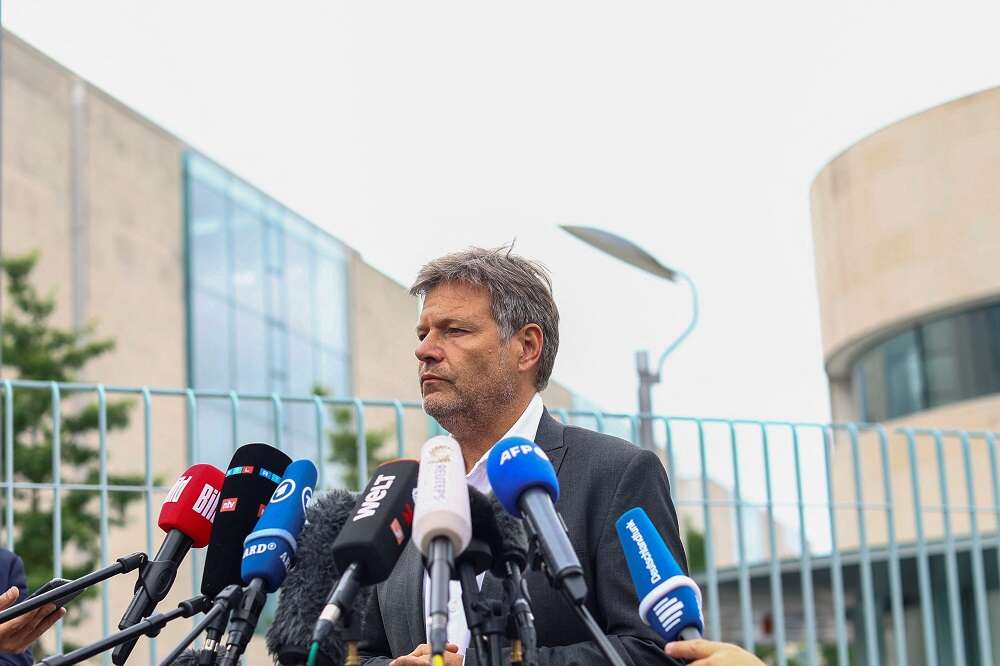
BERLIN (Reuters) -Germany’s public buildings are to become cooler and streets darker this winter under energy-saving measures approved by the cabinet on Wednesday, as part of efforts to protect the nation’s gas reserves to offset throttled deliveries from Russia.
Russian gas giant Gazprom has slashed gas flows to Germany via the Nord Stream 1 pipeline to 20% of capacity, citing technical issues. Berlin has called the move politically motivated, in view of Europe’s sanctions on Russia over its invasion of Ukraine.
With the incoming rules, the German government hopes to reduce gas usage by around 2%.
“Overall the measures save energy. However, not to the extent that we can sit back and say, ‘That’ll do now,'” Economy Minister Robert Habeck told reporters after the cabinet meeting in Berlin.
The measures could save private households, companies and the public sector around 10.8 billion euros ($10.7 billion) in total over the next two years, Habeck’s ministry said.
From Sept. 1, public buildings – with the exception of social institutions like hospitals – are to be heated to a maximum 19 degrees Celsius, and the heating could be turned off entirely in corridors and foyers.
Meanwhile, buildings and monuments will no longer be illuminated for purely asthetic purposes and businesses could be banned from keeping their shopfronts illuminated at night.
A ban is also planned on the heating of private swimming pools.
The cabinet also on Wednesday approved legislation to prioritize energy transport on part of the country’s rail networks.
This follows weeks of critically low water levels on the Rhine river, which has disrupted logistics and added to Germany’s energy headache as industry temporarily switches to more coal and oil due to the dearth in Russian energy imports.
Alongside the new energy-saving measures, Germany is also working to set up two liquefied natural gas terminals on the North Sea coast to help boost gas storage for the winter months. [L8N2ZS2DI] [L1N2ZT27X]
($1 = 1.0068 euros)
(Reporting by Rachel More, Miranda Murray and Vera Eckert; editing by Matthias Williams and Hugh Lawson)

